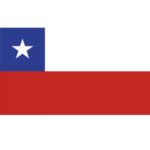

On March 6, 2023, the National Economic Prosecutor’s Office (FNE) filed a request with the Tribunal de Defensa de la Libre Competencia (TDLC) against a renowned laboratory convicted of collusion in 2018, which was also forced to implementation of a free competition compliance program .
This requirement is due to the fact that the laboratory executed late and failed to comply with what was ordered by the court, increasing the probability of occurrence of events that contravene the legal provisions on free competition, which may affect customers and/or final consumers.
Specifically, the FNE seeks a declaration of non-compliance with said sentence and the imposition of a fine of 1,100 million Chilean pesos (USD 1.4 million).
This action reminds us that the decisions of the TDLC regarding compliance programs are supervised by the FNE, through the Compliance Inspection division, while said measures imposed by the court are intended to mitigate the risks of infringement of the rules of free competition and prevent the commission of crimes of this nature.
In this sense, although the establishment of compliance programs is voluntary, there are scenarios in which their implementation is mandatory , as was the case of the condemned laboratory. The court defined that the program should contain, as a minimum, the elements established in the FNE’s Compliance Program Guide , however, with respect to certain obligations, the sentence raised the standards suggested by said document. Some of these reinforced standards are the following:
- Senior management commitment to the compliance program through the establishment of a Compliance Committee.
- The figure of an autonomous and independent Compliance Officer , who ensures respect for the rules of defense of free competition and who reports to the Board of Directors on its mission.
- Conducting annual training on antitrust matters for senior executives and the company’s board of directors and others deemed by the compliance officer.
- Obtaining statements from the company’s senior executives , indicating that they are not aware of any violation of the laws that protect free competition.
It is important to mention that, although these programs do not constitute an exemption from liability for infringement of the rules established in defense of free competition, they imply other benefits, such as: (I) possible reductions in fines; (II) the early exercise of the compensated denunciation or (III) the possibility of reaching out-of-court agreements.
However, it should be noted that, in the case of compliance programs imposed by the judicial authority, their establishment is not only an obligation, but also an obligation coupled with a sentence, and therefore cannot unilaterally modify the imposed obligations, a matter that the FNE alleges in its request.
The aforementioned case shows us that, although it is extremely beneficial for any company to voluntarily implement a compliance program in free competition matters, its correct adoption is critical for the antitrust authority when it is an obligation ordered by a court . Then, not adopting a serious, credible and effective compliance program can come at a high price.
For more information on these topics, you can contact:

Francesca Franzani | Compliance Group Director | ffranzani@az.cl
Matias Edwards | Senior Associate, Antitrust Group | medwards@az.cl
Constance Delgado | Associate, Free Competition Group | cdelgadov@az.cl
Jaime Viveros | Associate, Compliance Group | jviveros@az.cl




